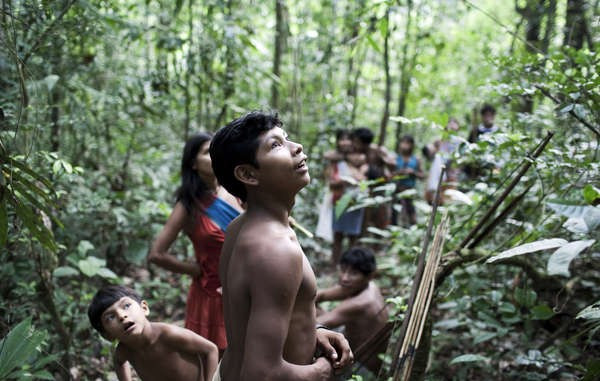Brazil Judge Halts Railway Expansion to Protect Engandered Awá Tribe

A federal judge has ordered mining company Vale to halt the expansion of a controversial railway track in Northern Brazil, as it would endanger the existence of the Awá tribe - the most endangered tribal community on earth.
To ensure the order is observed, Judge Ricardo Macieira has also decreed that Vale will receive a penalty of over £16,000 for every breach of the restriction.
The Awá tribe lives deep in the forest in the north-eastern state of Maranhao. Their home lies just 2km away from the railway, which spans 560 miles and ferries iron from Vale's Carajas mines to the port terminal at Ponda da Madeira.
Although Vale insisted that it would "listen to all the Awá's concerns [and] not obtain the [expansion] licence without doing so", the judge labelled its efforts "insufficient".
The judge also called the company's public hearings "inefficient", and warned the company it risked causing "extremely serious environmental degradation."
The ruling has been welcomed by the Awá community, which has been brought to the brink of extinction by land grabs and illegal logging.
"We don't accept the expansion of the train line, which passes right in front of our territory. It is really bad, and makes a lot of noise. The hunters can't find any game, [and] the animals are scared off," Survival International quoted an Awá tribesperson as saying.
"Assuming the judge's ruling is respected, this is good news for the Awá. But the railway isn't the only threat to the tribe's survival. Loggers, ranchers and settlers are still brazenly flouting Brazilian law. Despite assurances from Brazil's authorities, the Awá's way of life still hangs in the balance - we need action," Survival's Director Stephen Corry said in a statement.
Survival is currently orchestrating a major campaign to save the Awá community. More than 30,000 people have written to Brazil's justice minister, calling for him to do more to protect the tribe.
© Copyright IBTimes 2025. All rights reserved.



















